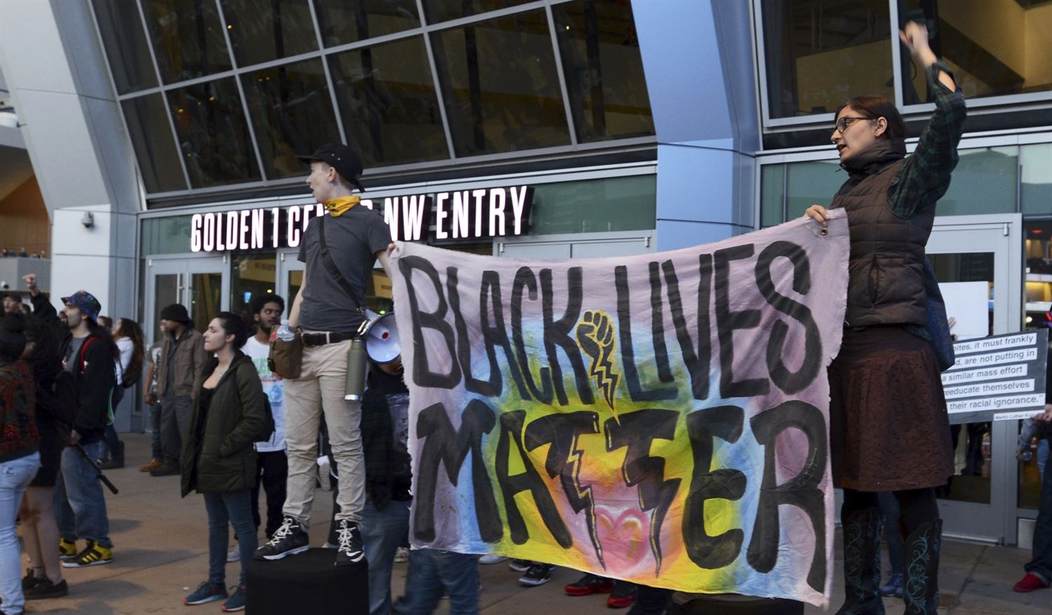As the protests over the horrific police killing of George Floyd devolved into looting, vandalism, and arson across America that destroyed black lives, black livelihoods, and black monuments, the Black Lives Matter movement has sought to capitalize on the situation, pushing radical demands to “defund the police” and “abolish the police” in the name of protecting black lives. According to a new survey from the Cultural Research Center (CRC) at Arizona Christian University, however, a terrifyingly small percentage of Americans believe that human life — of any race — is sacred.
Only 39 percent of Americans endorse the idea that “human life is sacred,” according to the CRC survey. In other words, six out of ten Americans reject the idea that human life has unconditional, intrinsic work. Only 15 percent of religious skeptics say that human life is sacred, along with 25 percent of those with a faith other than Christianity.
Slightly more than half of those who identify as conservative (57 percent) say human life is sacred, while only 35 percent of self-described moderates and 24 percent of self-described liberals agree.
Christians, in general, prove more likely to believe in the sacredness of human life. Evangelicals (60 percent) and born-again Christians (60 percent) say human life is sacred, while 46 percent of Pentecostals, 45 percent of Mainline Protestants, and 43 percent of Catholics agree. A whopping 93 percent of those with a biblical worldview say human life is sacred.
If Americans do not believe human life is sacred, what do they believe? Many agree with the statement that “life is what you make it, but it has no absolute value” (37 percent) or that “life does not attain its full value until we reach our highest point of evolution and expression” (11 percent).
While Americans seem divided on the question of human life’s value, most (69 percent) say that “people are basically good.” The claim that human beings are “basically good” runs counter to the Bible’s teaching on the Fall and the Christian doctrine of Original Sin, which teaches that human beings are made in God’s image but are fallen and need redemption.
Most Americans (56 percent) agree with the statement that humans are made in God’s image, are fallen, and need redemption. Others say human beings are merely “material substance — biological machines” (12 percent) or “part of the mind of the universe” (12 percent).
George Barna, CRC Director of Research, argued that the Black Lives Matter movement is protesting “the wrong problem.”
“A movement to defund police departments might make sense if people are innately good. People with a humanistic worldview argue that crime and violence happen because of poverty, bad parenting, systemic discrimination, and other external forces,” he argued. “Yet crime statistics, political tensions, tendencies toward anger and hatred, and America’s moral deterioration and confusion suggest that we are neither innately good nor that emotional responses to empirical challenges will solve the problems.”
“The underlying issues are ill-formed character and a broken moral compass. Economic, social and cultural depravity are outgrowths of our moral and character deficiencies, not causes,” the researcher argued. “Poor people with godly character and biblical morals make good choices. Rich people with bad character and inappropriate morals make bad choices, despite their education, fame, wealth, and social class. An objective assessment of history shows that adults, like children, need ethical and reasonable boundaries that are consistently and justly enforced. Remove those boundaries and you get the kind of anarchy that results in disrespect, violence, crime, and hatred.”
The solution, Barna suggested, is not legal reform but investments in human development. “You cannot change the hearts of people by outlawing racism. You will not create peace by passing laws and forcing compliance. Efforts to facilitate economic equality through resource redistribution have never successfully resulted in the expected or desired outcomes,” he warned.
“From a biblical perspective, the problem is that we have a sin nature, pure and simple. We can deny it, but it still exists. Every society can benefit from specific systemic changes, present-day America included. But any systemic changes designed to transform the culture will be short-lived and of limited impact unless the hearts and minds of the people who populate that system are transformed first,” Barna explained.
“It’s not popular to admit, but our baseline problem is rebellion against goodness and holiness, driven by our arrogance and selfishness. Our problem is spiritual rather than political or economic,” he argued. “Given the cultural challenges we are facing today, our best strategy is to collectively turn to God, humble ourselves before Him, earnestly seek His love and forgiveness, and follow His wisdom and guidance.”
If Black Lives Matter activists truly want Americans to believe that human lives matter, they should champion a biblical worldview that grounds the sacredness of human life in the reality of God and the truths of the Bible. Otherwise, their race-based advocacy will only futher exacerbate America’s divides and worsen the root problem of sinful selfishness.
Tyler O’Neil is the author of Making Hate Pay: The Corruption of the Southern Poverty Law Center. Follow him on Twitter at @Tyler2ONeil.









